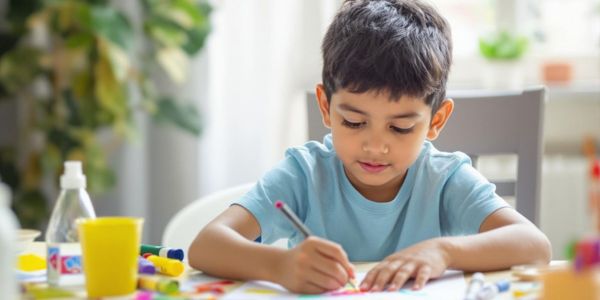If you're a homeschooling parent in Florida, you already know the freedom and responsibility that come with crafting your child's education. And now, with the expansion of Florida's Scholarship programs, there’s a new way to support that journey financially.
In 2024, the Personalized Education Program (PEP) opened eligibility to all Florida K–12 students, giving families access to up to $8,000 per year in education funds to form a personalized education for their learners. But there's a key catch: using PEP funds means stepping into a different legal category. Under Florida law, students in the PEP program aren’t considered traditional homeschoolers, and the rules and responsibilities look a little different.
So, what does this mean for homeschool families who want to access scholarship funds without losing control of their child’s learning? In this guide, we’ll walk you through the differences between PEP and traditional homeschooling, what scholarship funds can be used for, and how to decide which path is right for your family.
Many Florida homeschoolers use these funds to access live, online classes through approved platforms like Outschool. It’s a great way to add variety and expert instruction to your home learning plan.
What is the Personalized Education Program (PEP)?
Florida’s Personalized Education Program (PEP) is a unique track under the state’s Education Savings Account system. Created by the state legislature and authorized under Florida Statute §1002.395, PEP allows families to direct up to $7,000 to $11,000 per student, per year, toward customized learning—without enrolling in a traditional public or private school, and without filing as a home education student.
PEP is managed by the same Scholarship Funding Organizations (SFOs) that oversee other ESA programs, and comes under the Florida Tax Credit Scholarship. It’s distinct from traditional homeschooling, although many families who homeschool choose to participate in PEP because of the financial support it offers.
Who can apply for ESA funds under PEP?
- All Florida K-12 students are eligible, regardless of income.
- Priority is given to:
- Families earning under 185% of the Federal Poverty Level.
- Children in foster care.
- Applicants must not be enrolled in a public or private school or registered as traditional homeschoolers while using PEP funds.
- Hybrid arrangements—where families use PEP funds and supplement with private providers or part-time programs—are allowed, as long as they follow PEP guidelines and use approved vendors.
What ESA Funds Can Be Used For
Families participating in PEP can use ESA funds for a variety of approved educational expenses, including:
- Curriculum
- Online courses and platforms (like Outschool)
- Tutoring by certified or approved providers
- Instructional materials and supplies
- Standardized testing and evaluations
- Furniture like desks, chairs, etc., for homeschool use (limits to purchases apply)
- Software (like Microsoft Word, etc.)
- Certain travel expenses
Purchases can be made either directly through SUFS or families can purchase approved items and then submit invoices for reimbursement. The complete list of eligible expenses hasn’t been announced for the 2025-2026 school year; eligible uses of funds might be subject to change.
Understanding PEP vs. Traditional Homeschooling
Although the Personalized Education Program (PEP) is not considered traditional homeschooling under Florida law, it offers many of the same benefits: parent-directed learning, flexible pacing, and the ability to tailor your child’s education to their interests. However, the two paths follow different legal structures and come with their own sets of rules.
- Families do not file a Notice of Intent under PEP, while traditional homeschoolers must file one with their school district superintendent, including parent and student information.
- PEP offers up to $7,000-$11,000 per student in ESA funds for approved educational expenses; traditional homeschoolers receive no public funding and pay out of pocket.
- Award amounts are subject to change, the above approximations were announced for the 2025-2026 school year.
- PEP students must complete annual assessments such as standardized tests; traditional homeschoolers only need to conduct an annual evaluation with fewer reporting obligations.
- PEP students are classified under private education law; traditional homeschoolers are legally enrolled in a home education program under Florida Statute §1002.41.
Step-by-Step: How to Apply and Set Up Your PEP Account
- Apply through an SFO
- Gather Required Documents
- Florida residency proof
- Your child’s birth certificate
- Prior school records (if applicable)
- Optional: income documentation for priority consideration
- Create and Submit a Student Learning Plan (SLP)
- Outlines subject areas, learning goals, and how funds will be used
- Must be approved by your SFO
- Complete Annual Evaluations
- Required for all PEP students; options include:
- State or norm-referenced standardized tests
- Portfolio review (if permitted by your SFO)
PEP students are classified as "private education" participants under the ESA law, not as homeschoolers. This affects how you report, assess, and document your child’s learning each year.
Note: Applications for the 2025-2026 school year are now closed. You can opt to be notified for any updates regarding the program on the Step Up for Students website.
FIRST MONTH FREE!
Get support that meets kids where they are.
Learn moreComparing PEP and FES-UA for Home-Based Learners
While the Personalized Education Program (PEP) is designed to support flexible, parent-directed education, it’s not the only scholarship program in Florida that allows for home-based learning. The Family Empowerment Scholarship for Students with Unique Abilities (FES-UA) also supports educational customization at home, though it has a different purpose and eligibility criteria.
- PEP is open to all Florida K–12 students, regardless of disability status, and offers approximately $7,000 to $11,000 (for 2025-2026 school year) in ESA funds for educational purchases.
- FES-UA is reserved for students with diagnosed disabilities and offers higher funding amounts—up to $10,000–$30,000, depending on need—to support therapies, specialized instruction, and learning accommodations.
- Both programs allow for home-based education but follow different rules for Student Learning Plans, evaluations, and eligible services.
- PEP students are considered "private education" participants, while FES-UA students are categorized as unique needs learners within a broader support framework.
If your child qualifies for both, families must choose one scholarship option. Using funds from both PEP and FES-UA programs is not permitted.
Frequently Asked Questions (FAQs) about ESAs and homeschooling in Florida
As you discover more about the scholarship and homeschooling landscape in Florida, it’s only natural to run into questions every now and then. These quick answers can help piece together the biggest ones parents have.
Who is eligible to apply for PEP?
All K–12 Florida students who are not enrolled full-time in public or private school and who are not registered as traditional homeschoolers are eligible. There are no income restrictions, but priority may be given based on specific criteria such as foster care status.
Can I use PEP funds for any type of curriculum?
Yes, under the Personalized Education Program (PEP) administered by Step Up For Students, you can use scholarship funds to purchase curriculum materials that best suit your child's educational needs. The program is designed to provide families with the flexibility to choose instructional materials that align with their values and educational goals.
What are the reporting and evaluation requirements?
All Florida scholarship students are required to take standardized norm-referenced tests annually, unless a diagnosed disability exempts them from doing so. For a complete list of testing options, check the official website for Florida’s Department of Education.
Can I switch to or from PEP mid-year?
Once funded, a family cannot switch scholarship programs. You will have to wait until the following school year to apply for a different scholarship program within Florida.
What is a Student Learning Plan (SLP)?
The Student Learning Plan (SLP) is a required outline of the student’s educational goals and subject areas for the school year. It helps ensure that scholarship funds are applied toward appropriate academic categories, typically including reading, math, science, social studies, and language arts. The SLP must be submitted annually, approved by your SFO, and kept up to date as your child progresses.
Taking your next steps
The Personalized Education Program (PEP) can be a powerful tool for Florida homeschool-style families looking for financial support while maintaining flexibility. But it’s not a one-size-fits-all solution. By understanding the rules, sticking with approved vendors, and planning ahead, you can create a rich, personalized learning journey that works for your child and your household budget.
At Outschool, we understand that flexibility is essential in home education, especially when planning around new opportunities. Staying informed now can give you more freedom to build the learning experience that works best for your family.






.svg)
.svg)







